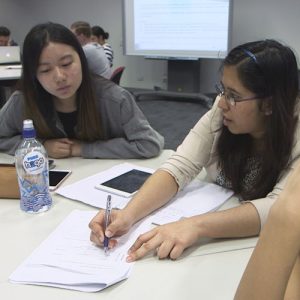 As we head towards the end of semester, students will soon have the opportunity to evaluate courses. Summative student evaluations provide useful information, particularly if the response rate is high enough to ensure a valid reflection of students’ experiences. However, online rates of participation are traditionally quite low and promoting participation is important for getting the most out of the process. Planning for next year’s evaluations now can also offer benefits.
As we head towards the end of semester, students will soon have the opportunity to evaluate courses. Summative student evaluations provide useful information, particularly if the response rate is high enough to ensure a valid reflection of students’ experiences. However, online rates of participation are traditionally quite low and promoting participation is important for getting the most out of the process. Planning for next year’s evaluations now can also offer benefits.
In my experience, evaluations of what went well on a course can be really positive and the process can also help identify any issues with the design or delivery. With this feedback you can consider what to keep and where things may need to be done differently in the future – or at least how to manage students’ expectations of the trickier areas!
Encouraging students to complete the evaluation is therefore worthwhile. Students (like the rest of us) are bombarded with all sorts of demands on their time. As we don’t offer incentives to encourage completion of the evaluation, it’s definitely worth letting students know that you want them to complete it, that you’re interested in the results and that you (and/or your department) will be acting on their feedback. Where students have a sense that there is a meaningful purpose to the exercise they are far more likely to participate (Chen & Hoshower, 2003).
Participation is even more likely where students feel they can influence the course for their own benefit. This is possible when you conduct a formative or mid-term evaluation – something to think about now for next semester! When given an opportunity to say how things are going early on in the course, students can get answers to their questions and understand why things are the way they are. It’s valuable feedback and, where possible and practicable, you can make some concessions to students’ requests, building up a sense of ownership and responsibility within the cohort.
References
Chen, Y & Hoshower, L.B (2003) Student Evaluation of Teaching Effectiveness: An assessment of student perception and motivation, Assessment & Evaluation in Higher Education, Vol 28, 1
Tessa Owens is Professional Teaching Fellow: Learning & Teaching in Innovative Learning and Teaching. She has taught in a university Business School in the UK and held cross-institutional roles in Learning and Teaching in the UK and NZ. Tessa was also an Accreditor for the UK’s Higher Education Academy Professional Standards Framework and has broad experience of assessing teaching portfolios and claims for teaching excellence. She has published nationally and internationally in the field of Learning and Teaching.

